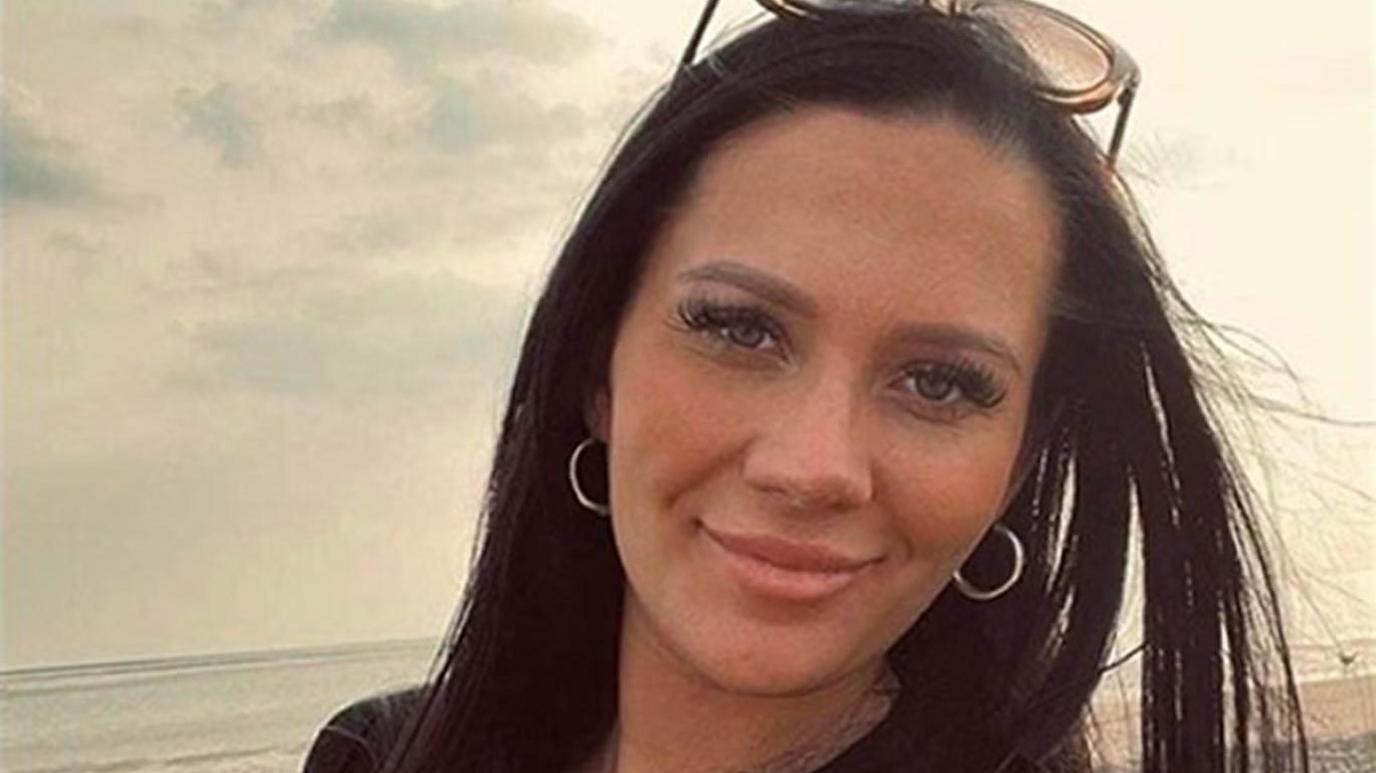Alleged abuse 'contributed to woman taking own life'

Kiena Dawes left a note which said "I was murdered", the trial has heard
- Published
A vulnerable young woman would not have taken her own life if she had been treated in a "loving" way, a court has heard.
Kiena Dawes, 23, was found dead by British Transport Police on a railway line in Barnacre, near Garstang, Lancashre in July 2022.
Preston Crown Court has heard the hairdresser, of Fleetwood, took her own life after suffering years of abuse from her partner Ryan Wellings - which the 30-year-old denies along with a manslaughter charge.
Ms Dawes, who had a history of fragile mental health, left a note which said "I was murdered" and that her partner, Mr Wellings, had "killed me", the court has heard.
Ms Dawes left her nine-month-old daughter with a friend on the morning of 22 July 2022 then travelled to the railway half an hour's drive away and took her own life, the jury has heard.
Contributory factors
Prosecutors said Mr Wellings' alleged violence was used to "grind" Ms Dawes down.
Expert prosecution witness Dr Nicholas Kennedy, a forensic psychiatrist, told the court: "My opinion is that if Mr Wellings acted as alleged, it had a significant impact on her over time and it contributed to the suicide."
Paul Greaney KC asked the witness: "If she had been treated in an appropriate, loving way, do you think she still would have killed herself?"
Dr Kennedy replied: "I think at least, probably not."
He said a series of factors had made a "more than minimal contribution" to the decision by Ms Dawes to take her own life.
These were her pre-existing emotionally unstable personality disorder (EUPD), the deterioration in her mental health, alleged abuse by the defendant, the alleged assault on her by Mr Wellings 11 days before her death and the anniversary of her father's death, the court heard.
Mr Wellings' defence claims Ms Dawes's accusations against him were either untrue or exaggerated and any injuries she suffered before her death were a result of his attempts to restrain her or accidental.
'Accumulative risk'
John Jones KC, representing Wellings, detailed Ms Dawes' mental health history, citing counselling in school, a diagnosis of anxiety and depression, alcohol misuse, self-harm and admissions to hospitals.
Defence expert witness Seena Fazel, professor of forensic psychiatry at Oxford University, said someone with EUPD was nine times more likely to take their own life than the general population.
Prof Fazel said killing oneself was an accumulation of risk factors and could not be reduced to one single factor.
He described various risk factors in Ms Dawson's case, including "historical" ones, such as past attempts at taking her life, a difficult childhood and family health problems and factors including the alleged domestic violence by Mr Wellings and the anniversary of her father's death.
Prof Fazel added: "I think they contributed together, and its very difficult to isolate one from the other."
Mr Jones asked what role the alleged violence and controlling or coercive behaviour by Wellings played in Ms Dawes's killing herself.
Prof Fazel replied: "I don't know, partly because her mental state seemed to fluctuate.
"It's difficult to know how to put it all together, it's quite complicated, there's many things going on at the same time.
"I think there's a number of factors that combined."
The trial continues.
If you have been affected by this story or would like support then you can find organisations which offer help and information at the BBC Action Line.
Listen to the best of BBC Radio Lancashire on Sounds and follow BBC Lancashire on Facebook, external, X, external and Instagram, external. You can also send story ideas to northwest.newsonline@bbc.co.uk, external and via Whatsapp to 0808 100 2230.
- Published2 December 2024

- Published28 November 2024

- Published27 November 2024

- Published26 November 2024
